Spoiler: Those ads you're seeing for a new X cryptocurrency endorsed by Elon Musk aren't what they appear to be.
In the dynamic landscape of online scams, our Avast team has identified a new and bold scam, using the likeness of Elon Musk. This quarter, we uncovered advertisements featuring Musk to promote a supposed new cryptocurrency. The irony is striking – these ads were paid for and displayed on a platform owned by Musk himself, creating a deceptive endorsement loop.
Here's what they look like:
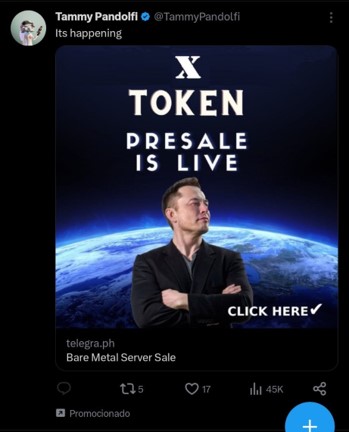
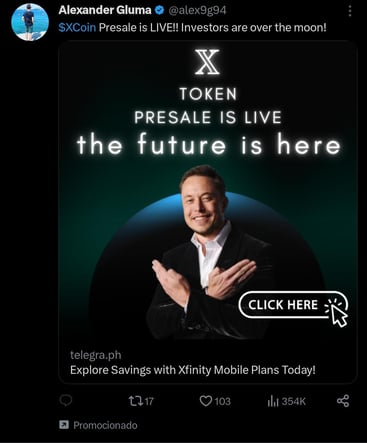
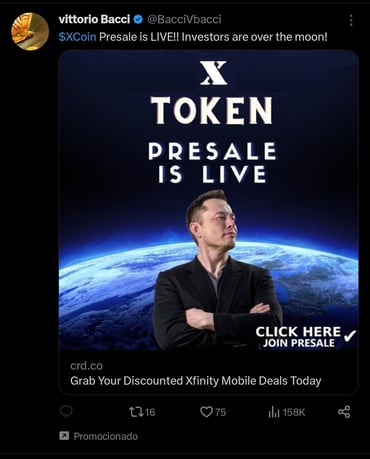
When you click on the ad, it takes you to a website that looks like a news outlet, talking about the launch of the new cryptocurrency and how you can join the “private pre-sale”:
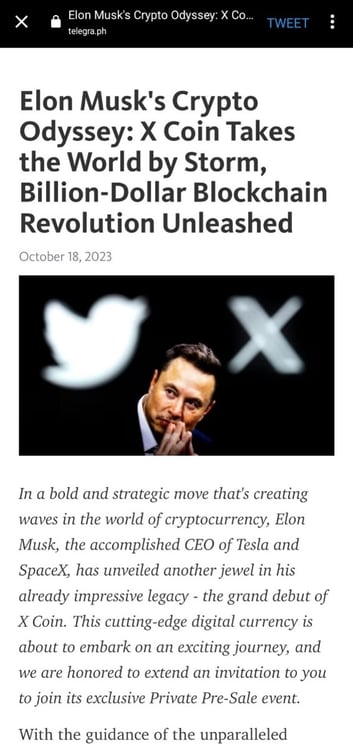
The first run of the scam we detected back in October had a few flaws that could give it away, although overall it was well designed. There were some minor details, such as changing the name of the cryptocurrency from X-Token to X-Coin a few times, or using the old name and logo of Twitter at the same time they were using the new X one:

But the most mind-blowing part of the scam showed up when they were offering the victims different promotions to buy the biggest amount possible of tokens. There were three main tiers of exclusive benefits which you could access with your purchase
- Tier 3: +10,000 X Tokens
- Tier 2: +20,000 X Tokens
- Tier 1: +30,000 X Tokens
Tier 3 participants were promised to receive “personalized investment recommendations and assistance from Elon Musk himself via WhatsApp.” If the potential victim hadn't suspected a scam until this point, this detail likely changed their mind: it's highly improbable that Elon Musk would use Mark Zuckerberg's WhatsApp as a communication method with anyone. The bad guys must have realized this was not the proper approach, as they removed this “promotion” in the following runs of the scam.
Investors that were buying more than 20k X Tokens were promised “to be entered into a raffle for a chance to win one of only 10 available tickets to travel to Mars.” And this is just for Tier 2 investors! Tier 1 investors “will have the chance to win a Neuralink brain chip that directly interfaces the human brain with OpenAI through a raffle.”
It’s a bit awkward to mention OpenAI although, to be fair Elon’s new AI project, Grok, had not been announced yet. In fact, the other scam runs that were launched after Grok was announced included it instead of OpenAI, and added a flame thrower from The Boring Company, or perks from Tesla:
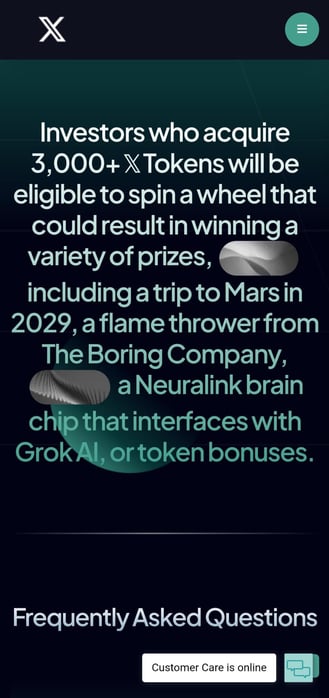
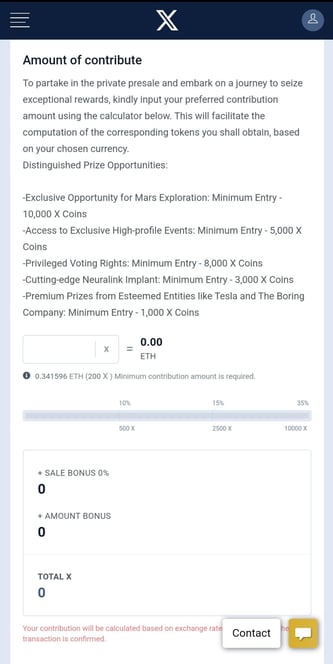
What are these guys really after? Money, of course. And some personal data to top it off. First, they ask the potential investor to create an account:
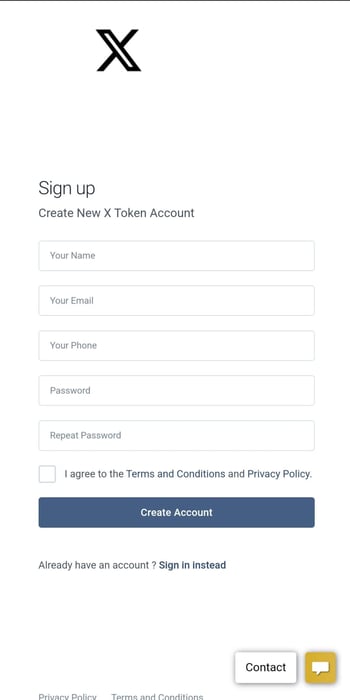
Once created, you can log in and check your balance:
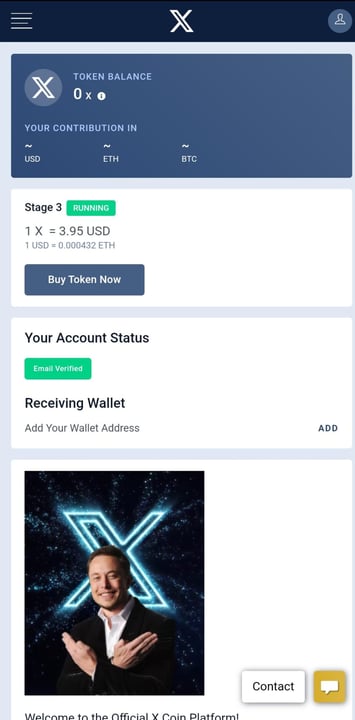
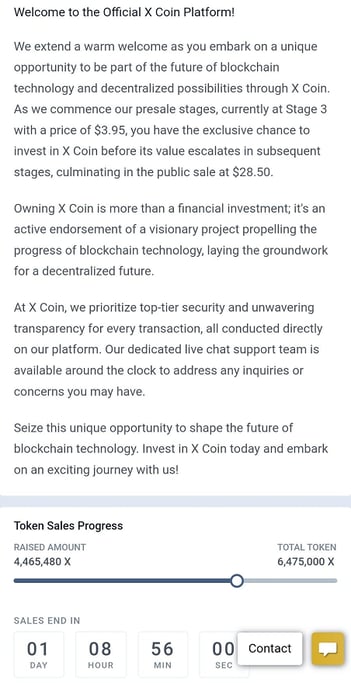
From here you are offered to join the private presale, where the more X Coins (they keep changing from X Token to X Coin) you buy, the more benefits you’ll enjoy. The minimum amount to buy in Ethereum is 0.3146, which is around US$900:
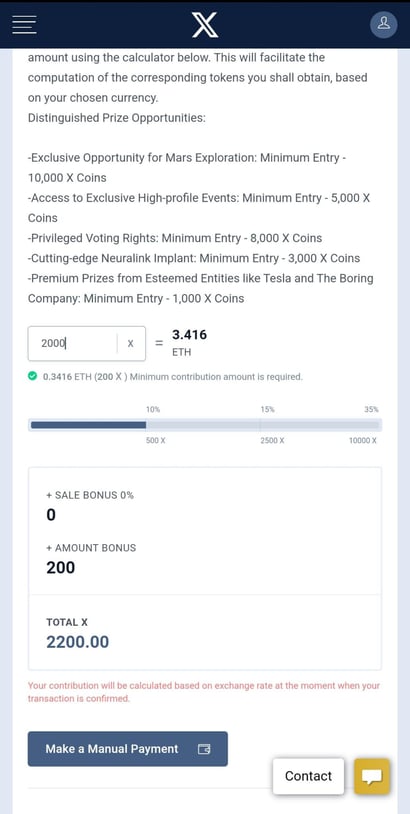
Payment is required in cryptocurrency, naturally. Anonymity is crucial for the scammers, so by the time the victim realizes the scam, getting a refund is impossible.
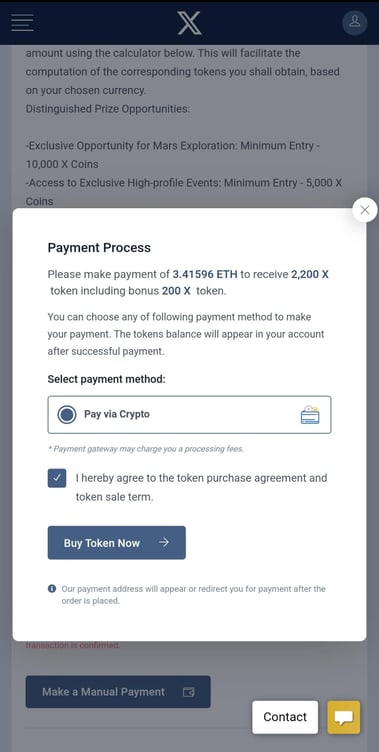
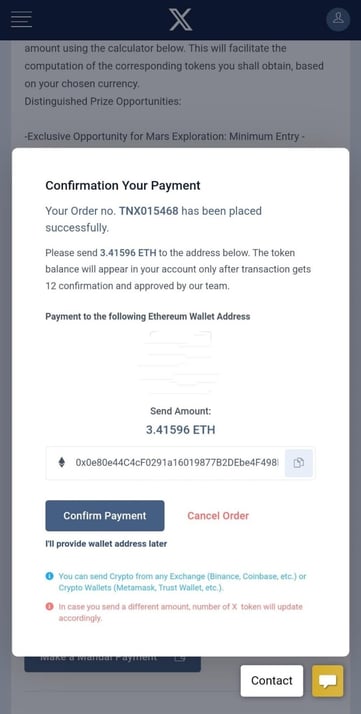
When you log in to the platform to see your balance and transaction history, everything is there: 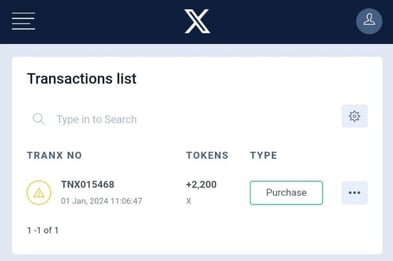
By this stage, the victim has already lost their entire “investment,” and it's only a matter of time before they realize this unfortunate truth.
As we wrap up our analysis of this scam, it's essential to understand the driving factors behind it. The scammers are exploiting the excitement around new and potentially profitable opportunities in cryptocurrency, particularly those connected to celebrities like Elon Musk.
The sophistication of this scam, from its well-crafted promotional tiers to the seamless appearance of a legitimate investment platform, underscores a worrying trend in cybercrime: the increasing complexity and believability of online scams. The use of real-time balance and transaction displays on the fake platform adds a layer of false legitimacy, luring unsuspecting victims deeper into the scam.
However, this case also serves as a stark reminder of the necessity for vigilance in the digital age. The incongruities—such as the inconsistent naming of the cryptocurrency and the implausible promises of personal interaction with high-profile individuals—are telltale signs of deceit. This scam exploits the excitement around emerging technologies like cryptocurrencies, Mars exploration, and neural interfaces, blending them into a narrative too enticing for some to ignore.
The key takeaway from this incident is the importance of critical thinking and due diligence in online investments. As we move forward, let this be a reminder to individuals and organizations alike to approach such “too-good-to-be-true" offers with skepticism and caution. Avast remains committed to uncovering and educating the public about such schemes, strengthening our collective defense against these evolving cyber threats.